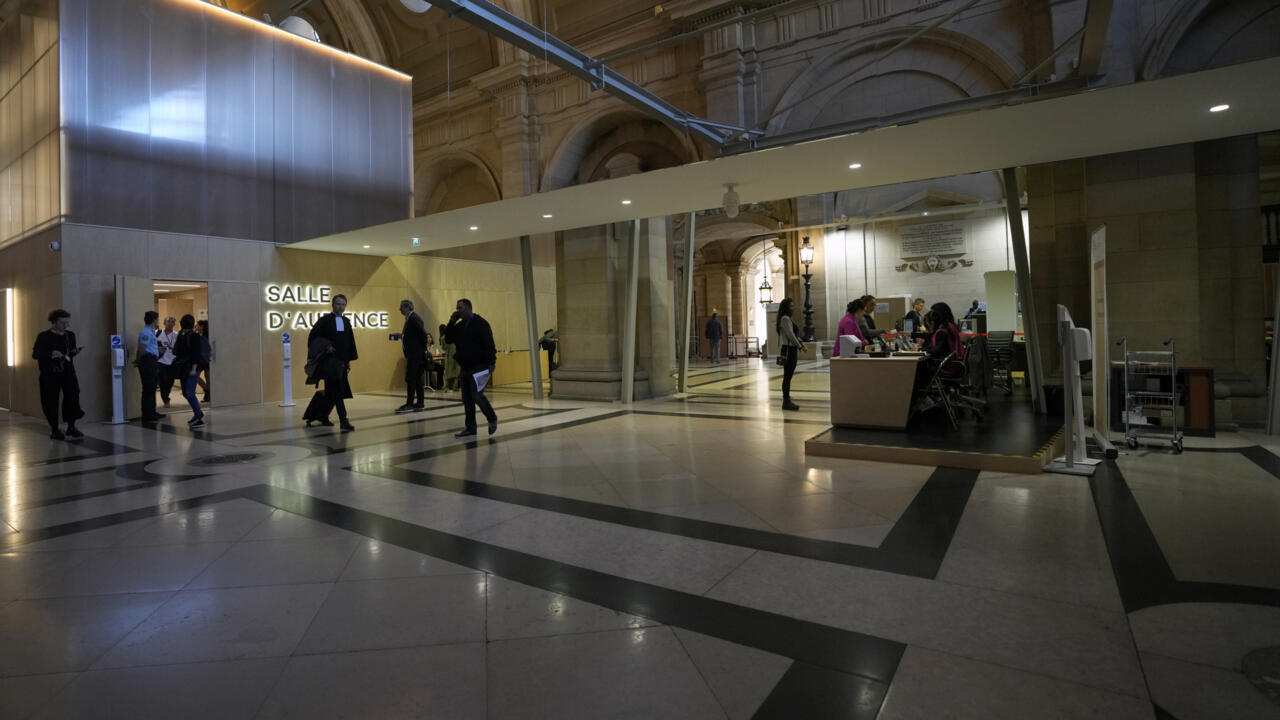Trial of ex-jihadist Jonathan Geffroy: "At the time, I was in a utopia"
The hall of the Special Assize Court of Paris (illustrative image).
© AP/Francois Mori
Text by: Laura Martel
3 mins
It is a rare word heard this Friday, January 20, the specially composed Assize Court of Paris.
Jonathan Geffroy is being prosecuted for “terrorist criminal association for having joined Syria with his family in February 2015. He joined the ranks of Islamic State fighters there before contacting French intelligence to request his exfiltration.
Incarcerated on his return to France in September 2017, the Toulousain, 40 years old today, presents himself as repentant.
He explained himself at length about his career, without trying to clear himself.
Advertising
Read more
transcript of hearing,
In 2007, Jonathan Geffroy, 25, converted for love.
But quickly falls, he says, on “
the bad people
” at the mosque near his home.
A mosque that many Toulouse jihadists have actually attended, and where Jonathan Geffroy notably meets the brothers Jean-Michel and Fabien Clain, future propagandists of EI.
All had a literal reading of the Quran.
Me, I had no notion of Islam, I tried to do well by applying the texts: this is the beginning of my apprenticeship and the starting point of my radicalization.
The "
tipping point
", he continues, was in 2012. "
Traumatized by the abuses of Bashar el-Assad
", Jonathan Geffroy began to think about the start, especially since over time, "
all my friends went there
,” he points out.
“I bear a responsibility”
When he finally reached Syria in February 2015, with wife and child, Jonathan Geffroy maintained that he wanted to "
be an ambulance driver
".
“
But I don't rule out fighting
,” he admits.
I am completely under the influence at this time.
Proud to have weapons – it's a feeling of power – and very happy to meet people from all over the world who have come to take part in this fight against Bashar, even if this fight has, in fact, very little existed, and that IS was not on the side of the Syrians at all.
But at the time, I was in a total utopia that I built and that IS advocated in its videos.
His "
disengagement
" will take place in two main stages: he is first personally "
disappointed
" with IS, which wants to send him back to the front when he is wounded.
Around May 2016, the couple then sought a way to leave the area.
Then comes the Nice attack on July 14, 2016. Jonathan Geffroy, who nevertheless saw a person crucified as soon as he arrived in Syria, begins to open his eyes.
At first, I protected myself by telling myself that I had nothing to do with the abuses, it was not me.
With Nice, I said to myself: “I joined these people, I bear a responsibility.
»
“Leaving is a choice”
Ce « long processus » de désengagement, Jonathan Geffroy dit l'avoir poursuivi depuis son retour en France, en septembre 2017 et durant ces plus de cinq ans passés détention.
Aujourd'hui, j'ai honte d'être parti, d'avoir rejoint ces gens, de ne pas avoir été capable de réfléchir par moi-même, et surtout d'avoir emmené ma femme et mon fils sur un terrain de guerre.
Mais n'essaie-t-il pas de se défausser en se présentant, comme dit le président, en « jiahdiste malgré lui » ? « Il y a eu embrigadement, c'est certain, mais partir est un choix. »
Debout face à la cour, il confie se sentir comme un « condamné présumé ».
It's very hard to accept.
I have always been cooperative with the intelligence services, then the judge, because I see no other way to prove my disengagement.
"
I can't do anything more.
All I ask is to get my life back
,” he breathes.
►To re-read: The Toulouse ex-jihadist Jonathan Geffroy before the special assize court in Paris
Newsletter
Receive all the international news directly in your mailbox
I subscribe
Follow all the international news by downloading the RFI application
France
Justice
Terrorism
Syria
IS

